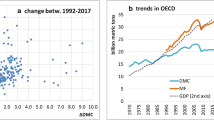Abstract
The new and rapidly changing environment of development administrators includes (1) the emergence of a world society of interdependent nations, (2) a rapid and confusing technological and scientific revolution, (3) the expansion of “service societies” in industrialized countries, (4) new major alternatives for war, neocolonialism, despotism and materialism, and (5) development problems of ascending complexity and difficulty.
Post-industrial beginnings in modern management arise from a background of management thought and technique in agriculturla epochs and the more recent industrial revolution. They encompass computer technology; operations research; systems approaches, including systems engineering, management information systems, and general systems research; cost-effectiveness analysis and PPBS; social indicators; and “futurecasting.” Their development has contributed to a growing gulf between technique and capability, to a “triumph of technique over strategy” and a “retreat from human values.”
Attention is directed to specific strategies and tactics of introducing modern management techniques in developing nations. The efforts to do this during the 1960 Development Decade are reviewed. The prospects for the 1970's are previewed, and suggestions offered for “problem area task forces” and the expansion of U.N. activities in advancing, not merely diffusing, the current “state of the art.”
Since the most significant modern management advances have been tactical, a dozen principles of strategic decisionmaking are suggested: (1) responsible decisionmaking, (2) the conflict essence of problems, (3) selectivity, (4) total system appreciation, (5) relative proportions, (6) sequential model-using, (7) problem interrelationships, (8) jointed incrementalism, (9) organized and unorganized interests, (10) the emotional basis of rational action, (11) investment in future capabilities, and (12) power mobilization and use.
The paper ends by raising vital questions on the improvement of managerial values. This is done by specific proposals for a code of managerial ethics and the formulation of more humanistic management goals.
Similar content being viewed by others
Author information
Authors and Affiliations
Rights and permissions
About this article
Cite this article
Gross, B.M. Management strategy for economic and social development: Part I. Policy Sci 2, 339–371 (1971). https://doi.org/10.1007/BF01406137
Issue Date:
DOI: https://doi.org/10.1007/BF01406137




